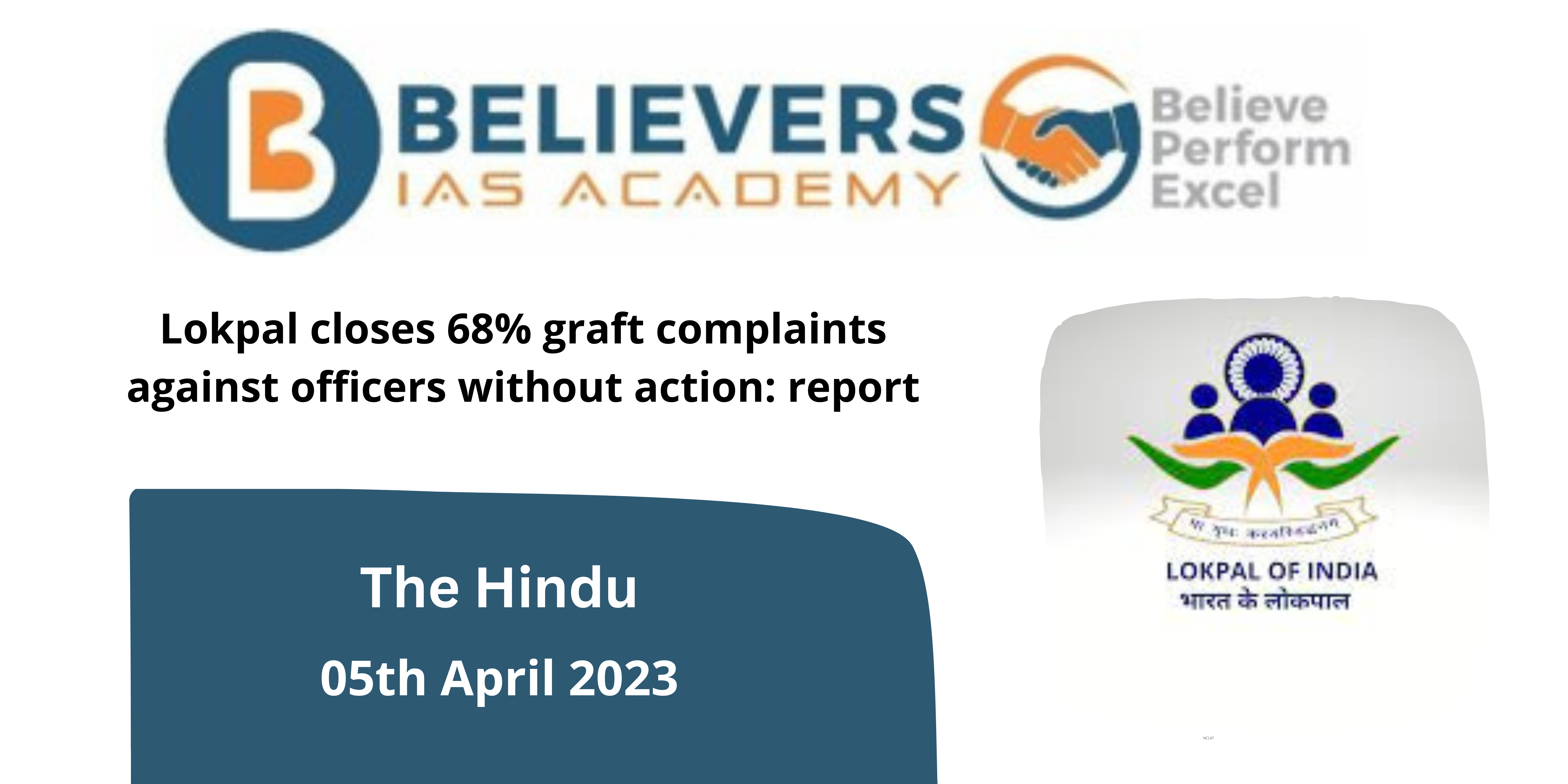Lokpal closes 68% graft complaints against officers without action: report
Context:
Around 68% of corruption complaints against public functionaries that landed with the Lokpal of India were “disposed of” without any action in the past four years. Only three complaints were fully investigated, according to information provided by the Lokpal’s office to a parliamentary panel.
Points to Ponder:
- The Lokpal and Lokayukta Act of 2013 established Lokpal for the Union and Lokayukta for States. These organizations are statutory entities with no constitutional standing. They act as an “ombudsman,” investigating allegations of corruption against certain public officials and other connected issues.
- The Lokpal of India was created to encourage clean and responsive administration by investigating complaints against public officials, including the Prime Minister.
- In 2022-23, the Lokpal was given a budget of 197 crores, which was mostly spent on salaries, office costs, and work outsourcing.
- In the past four years, the Lokpal of India, the country’s first anti-corruption body formed in 2019, has dismissed approximately 68% of corruption complaints against public functionaries without taking any action.
- According to material provided by the Lokpal’s office to a parliamentary panel, only three complaints were completely investigated, while 36 were in the preliminary stage.
- Almost 90% of complaints were not in the specified format, and up to 6,775 were rejected on that basis. So far, the Lokpal’s office has not prosecuted a single individual accused of graft.
- The Lokpal was led by Justice Pinaki Chandra Ghosh, who retired in May 2022 after reaching the age of 70. Since then, Pradip Kumar Mohanty has served as Lokpal’s interim Chairperson.
- Civil society organizations have criticized Lokpal’s performance, claiming that the agency has been ineffective in combating corruption.
- The Lokpal office has also come under fire for not being proactive in investigating complaints and for lacking the required infrastructure and resources to combat corruption effectively.




